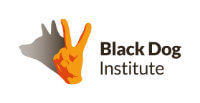
The FIFA World Cup, one of the most watched sporting events in the world, brings together some of the world’s most elite athletes, putting them centre stage in a dazzling spectacle of skill and prowess. However, behind the sheen is the reality that elite athletes are at greater risk of experiencing psychological distress.
Pressure to succeed, expectations of others, risk of injury, frequent travel, overtraining and general life stress create ripe ground for the development of mental health issues, all at a high-risk time; most elite athletes’ competitive playing years overlap with the peak age of onset of many mental illnesses.
A study by Orygen of AIS-supported athletes in 2020 found that athletes were significantly more likely to report symptoms of depression and anxiety at a level that would warrant professional health care, with roughly one in three elite athletes experiencing symptoms of anxiety and depression (Purcell, Rice, Butterworth, Clements, Sports Med. 2020). Another study, led by Griffith University researchers, supported the finding that athletes are a high-risk population, but also offered hope, finding that high level athletes displayed a resilience that helped them to positively adjust after a period of overwhelming stress (Balcombe, Leo. JMIR Mental Health. 2021).
While sporting communities are starting to recognise the high prevalence of mental health issues in athletes, there are many barriers to treatment-seeking. Continued stigma around mental illness, negative attitudes towards help-seeking, and low mental health literacy all contribute to athletes not receiving the help they need. There is a lot of work to be done in this space, and digital mental health has the potential to be an important piece of the puzzle.
Athletes are regularly screened for sleep quality, nutrition, and injury to ensure they can compete at their peak potential. However, mental health is often only addressed during times of crisis. By routinely assessing the mental wellbeing of athletes, coaches and health professionals could intervene early and create a non-stigmatized environment to optimise athletic performance. Digital tools, with their ease of access and broad reach, have been used widely for psychological screening and tracking in the general population, yet hold as-yet unrealised potential in the elite athlete population.
A hybrid model of care, combining face to face treatment with digital resources, could help the athletic community tackle existing barriers and facilitate the prevention and early intervention of mental health issues. Digital resources can provide easily accessible, trustworthy information, improving mental health literacy and reducing stigma. Digital resources can be accessed anytime, anywhere, making them the perfect mental health companions for athletes travelling for competitions and unable (or reluctant) to see a health professional in person.
Despite their potential utility, the digital mental health landscape severely lacks specific resources to support the unique mental health needs of elite athletes, and there is much potential for innovation in this space. Some would say it is potential highly worth tapping into, if we value the wellbeing of our athletes and, by extension, the sustainability of our favourite televised sporting events into the future.
References
Purcell R, Rice S, Butterworth M, Clements M. Rates and Correlates of Mental Health Symptoms in Currently Competing Elite Athletes from the Australian National High-Performance Sports System. Sports Med. 2020 Sep;50(9):1683-1694. Doi:10.1007/s40279-020-01266-z. PMID:32026315. https://pubmed.ncbi.nlm.nih.gov/32026315/
Balcombe L, De Leo D. Psychological Screening and Tracking of Athletes and Digital Mental Health Solutions in a Hybrid Model of Care: Mini Review. JMIR Form Res 2020;4(12):e22755. Doi:10.2196/22755. PMID:33271497. PMCID:7746225. https://formative.jmir.org/2020/12/e22755/
Purcell R, Gwyther K, Rice S.M. Mental Health in Elite Athletes: Increased Awareness Requires An Early Intervention Framework to Respond to Athlete Needs. Sports Med – Open 5, 46 (2019). https://doi.org/10.1186/s40798-019-0220-1
If you would like to explore digital mental health resources currently available check out Head to Health or our eMH Directory.





